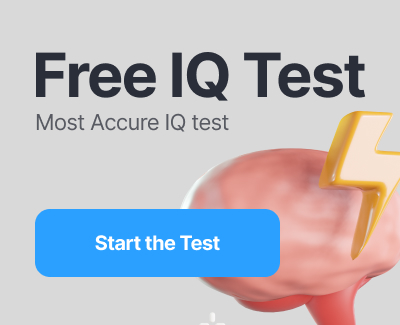
Executive function refers to the higher-level cognitive skills you use to control and coordinate your other cognitive abilities and behaviors. How we organize our lives, how we plan, and how we execute those plans is largely driven by our executive system. We are going to address this issue and another aspect of executive functions in this article.
What Is Executive Function?

Like many aspects of cognitive ability, executive functions are useful in many different situations. Unfortunately, however, they also degrade rapidly under stress and pressure. If only we should all be so lucky to be as cool, calm, and collected as James Bond as he decides which wires to clip to defuse a nuclear bomb threatening to destroy civilization as its timer rapidly counts down to zero. If we could hang on to our thinking skills in the face of complexity and stress, in the face of pressure at work and in relationships, seemingly the world would be a better place, and our lives would be more fulfilling (or at least we wouldn’t get blown to bits).
More realistically, we might inhibit impulses that get us into trouble, that lead us down rocky paths, and into bad decisions that bring problems, sickness, and even death. On the more positive side, we might do better in school and work, routinely avoid bad situations and encounters, and feel generally good about the choices we make.
Of course, there are situations in life in which it is far better to respond quickly without thinking about things, such as when hitting the brakes when the car in front of us stops suddenly in traffic. It is also possible to ‘overthink’ or ruminate on a given situation or topic in ways that can impair our well-being and our ability to take action. For most aspects of daily life, however, executive functions are more help than hindrance.
Types of Executive Functions

Executive functions can be divided into organizational and regulatory abilities. Organization includes gathering information and structuring it for evaluation. Regulation involves evaluating the available information and modulating your responses to the environment. Seeing a wonderful dessert in front of you may be tempting, but your executive system might remind you that eating it would conflict with your inner goals, such as losing weight.
• Organization – attention, planning, sequencing, problem-solving, working memory, cognitive flexibility, abstract thinking, rule acquisition, selecting relevant sensory information
• Regulation – initiation of action, self-control, emotional regulation, monitoring internal and external stimuli, initiating and inhibiting context-specific behavior, moral reasoning, decision-making
Executive Function And The Brain

Executive function and the brain’s frontal lobes, particularly the prefrontal cortex (PFC), are well-placed for a role in high-level modulation of lower-level processes supported by posterior brain regions. Along with rich interconnections within its subregions, the PFC sends and receives projections from virtually all major sensory and motor cortical systems, with access to highly processed multi-modal sensory information represented in higher-order sensory regions. Strong interconnections exist between the PFC and subcortical structures, such as the basal ganglia. The PFC is thus well placed to integrate diverse, high-level representations, and to exert control over various brain systems.
It is now commonly accepted that patterns of activity within the PFC represent the current behavioral context and/or current goals and intentions and that these representations can bias processing in posterior sensory and motor brain regions.
Role of executive processes

In the organization of cognition At the heart of most (but not all) theories of executive function is a distinction, or gradation, between routine (or ‘automatic’) and non-routine (or ‘controlled’) processing. Routine processing refers to mental operations that are well rehearsed or overlearned, for example reading out a word.
By contrast, non-routine processing most commonly refers to mental operations that are used in situations when there is not a well-established stimulus-response association, or where a behavioral impasse has occurred (for example one notices an error, or realizes that one is behaving in a sub-optimal fashion).
The term ‘executive functions’ has become systems, with access to highly processed multi-modal sensory information represented in higher-order sensory regions. Strong interconnections exist between the PFC and subcortical structures, such as the basal ganglia. The PFC is thus well placed to integrate diverse, high-level representations, and to exert control over various brain systems.
It is now commonly accepted that patterns of activity within the PFC represent the current behavioral context and/or current goals and intentions and that these representations can bias processing in posterior sensory and motor brain regions. However, the PFC is a huge region, with considerable variation in cytoarchitecture and connectivity.
Paradigms In Executive Function Research

Historically, a major obstacle to progress in research into executive function has been the difficulty of quantifying the processes supported by the human frontal lobes, a problem compounded by the variety of cognitive, social, and emotional changes that have been reported to occur as a consequence of damage to this region.
Methodological and technological advances over the last forty years, however, have established links between the performance of certain paradigms which putatively make demands upon executive processes and the operation of the prefrontal cortex, as assessed by human lesion studies, functional neuroimaging, and other methods (such as electrophysiology).
Many such tasks can be used in work on humans: the Wisconsin Card Sorting Test, the Tower of London test, the Trail-Making Test, and the Hayling Sentence Completion Test, to name but a few. What these tasks generally have in common is that they require processing beyond the instantiation of a single set of well-learned or directly cued associations between stimuli and responses.
This may be, for instance, because they require: overcoming the tendency to enact strong stimulus–response associations that are currently not relevant (‘inhibition’); remembering and manipulating information over delay periods, especially in the face of interference (‘working memory’); switching between two or more alternative stimulus–response mappings (‘flexibility’); ‘(self-)initiation’. After all, there is an absence of external cues to prompt behavior; development of a novel strategy or approach (‘strategy application’); or control of novel behavioral sequences over long periods (‘multitasking’ or ‘prospective memory’, for example).
Similar progress has been made in work on animals, except that in this case work has largely concentrated on tasks that have the first three characteristics. It is now clear that the dynamics of these types of paradigms are complex, and that many other brain regions are involved in their performance. Moreover, the prefrontal cortex, especially in humans, probably supports many abilities that have so far received scant attention (for example, aspects of social behavior or creativity). However, the development of these procedures has opened up the possibility of objective evaluation of what once seemed scientifically intractable. Consequently, the field is currently one of the fastest-growing in cognitive neuroscience.
Why Does It Matter?

Your executive functions allow you to manage your life and interact with others effectively and enjoyably. Intellectual aspects of work and life require executive function at any age. This can include things like knowing your way around when driving, budgeting, shopping, making a schedule, and playing board games.
Executive function also helps you manage other skills that aren’t necessarily considered intellectual. For example, organizing your home, getting along with others, and sports strategies all involve executive function along with other skills. Most people have some strengths and weaknesses in different aspects of executive function. Factors such as genetics and childhood experiences can affect executive function. You might have noticed your strengths and weaknesses in executive function and those of other people you spend time with.
Signs Of Executive Function Disorder

Many different medical conditions can affect executive function. Examples include neurodevelopmental problems, dementia, a stroke, brain damage from trauma, inflammatory brain conditions, and oxygen deprivation Signs of an executive function disorder include:
• Forgetting facts, appointments, or experiences
• Not doing important tasks, like paying bills
• Trouble concentrating
• Diminished ability to use familiar objects
• Getting lost
• Mood changes or withdrawal from others
• Worsening performance at school or work
Keep in mind these symptoms can occur due to other issues unrelated to executive function, such as hearing loss, depression, or a sleep disorder.
Improve Executive Function

Most of the time, executive function improves throughout life as experiences shape these skills. People are always learning and trying to make things work better by repeating actions and behaviors that bring good results and reducing behaviors that lead to bad results.
For example, most people who forget something important—such as filling the car with gas before a long trip—will remember to do it next time to avoid the inconvenience. And most psychologically healthy people who unintentionally say something that hurts another person’s feelings will not repeat the same mistake.
Ways to improve executive function include:
• Sleep
• Quiet time
• Exercise
• Meditation
• A healthy diet, low in fat and excess sugar
• Reflection
• Practice
• Taking a class or learning a skill that is focused on executive function (such as martial arts, learning and practicing a new conversational language, playing an instrument in a band, team sports, filmmaking)6
• Hobbies that are not directly related to executive function (crafts, cooking, and many more)
Bear in mind that It’s important to know that improvement of executive function can be a challenge if you can’t figure out what you are doing wrong. Being able to have the insight to understand why mistakes were made is also part of executive function.
If you are having problems with making bad decisions, it can be beneficial to talk to trusted and unthreatening family members, friends, or coworkers to see if they have a perspective that could help fill in the gaps for you. Sometimes, seeing a therapist can help with strategies for improving executive function.
Conclusion
In general, it should be said that executive tasks are our practical and cognitive ability to reach our achievements and our goals. We should know about the vital skills of human beings in individual social life and its weaknesses because through studying in advance We can both help improve our executive functions and abilities and develop our goals and tasks… So, let’s work on strengthening our executive functions to become more efficient and effective people in all aspects of life.
